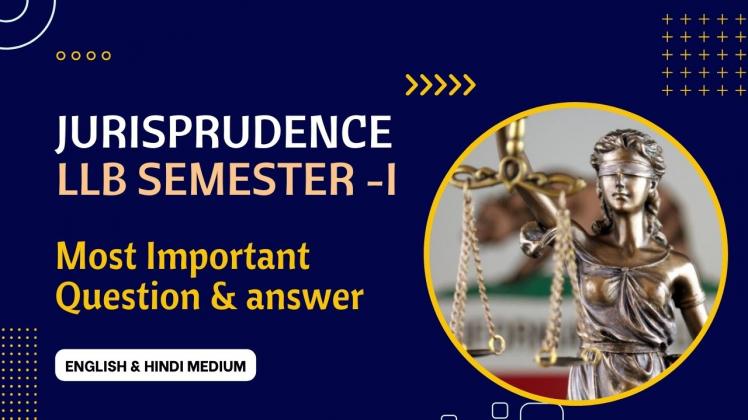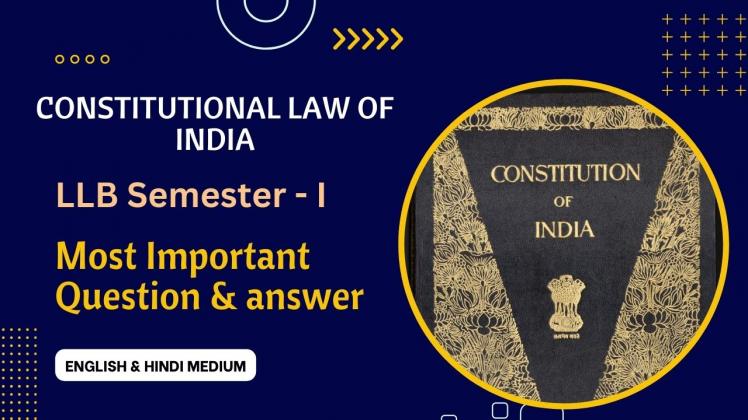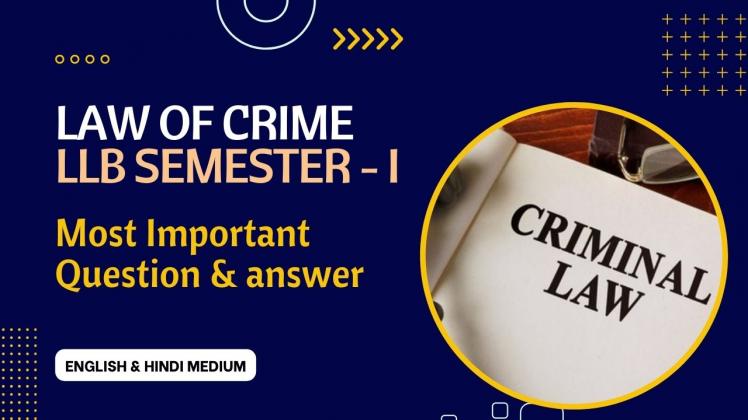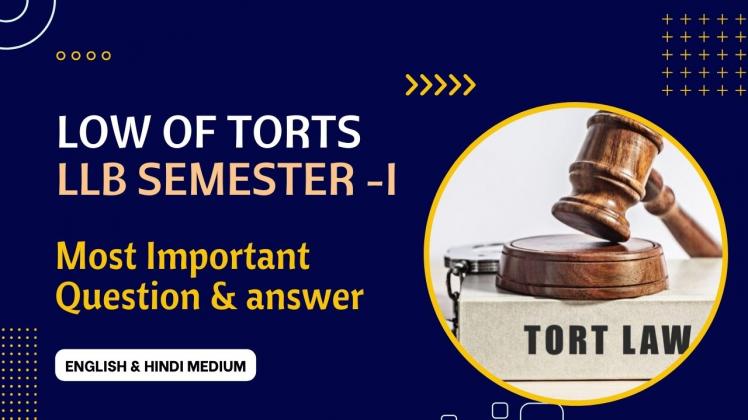

LLB Constitutional Law of India Sem I
LLB Constitutional Law of India (Semester I) Course Description
Course Overview:
The Constitutional Law of India course for LLB Semester I provides an in-depth study of the foundational principles, structure, and key provisions of the Indian Constitution. It aims to familiarize students with the essential aspects of the Constitution, its development, and its role in the legal and political framework of India. This course lays the groundwork for understanding the complex legal mechanisms and doctrines that govern the country.
Course Objectives:
- To understand the historical context and evolution of the Indian Constitution.
- To study the key features and principles enshrined in the Constitution.
- To analyze the structure and functioning of various constitutional bodies and authorities.
- To explore the fundamental rights and duties of citizens.
- To comprehend the dynamics of federalism in India.
- To critically examine significant constitutional amendments and landmark judicial decisions.
Course Outline:
-
Introduction and Historical Background:
- The significance of the Constitution.
- Historical context and the making of the Indian Constitution.
- The role and composition of the Constituent Assembly.
- The objectives and philosophical underpinnings of the Preamble.
-
Salient Features of the Indian Constitution:
- Length and complexity.
- The concept of a Sovereign, Socialist, Secular, Democratic Republic.
- The idea of Justice, Liberty, Equality, and Fraternity.
- The Parliamentary system of government.
-
The Preamble:
- Text of the Preamble.
- Importance and interpretation.
- The role of the Preamble in constitutional interpretation.
-
Fundamental Rights and Duties:
- Overview of Fundamental Rights (Articles 12-35).
- Detailed study of key rights: Right to Equality, Right to Freedom, Right against Exploitation, Right to Freedom of Religion, Cultural and Educational Rights, and Right to Constitutional Remedies.
- Fundamental Duties (Article 51A): Scope and significance.
-
Directive Principles of State Policy:
- Concept and classification of Directive Principles (Articles 36-51).
- Relationship between Fundamental Rights and Directive Principles.
- Judicial interpretation and enforcement of Directive Principles.
-
The Union and Its Territory:
- Composition and reorganization of states (Articles 1-4).
- Provisions regarding the admission and establishment of new states.
-
Citizenship:
- Constitutional provisions related to citizenship (Articles 5-11).
- Acquisition and termination of citizenship.
-
The Union Executive:
- The President and Vice-President: Election, powers, and functions.
- The Council of Ministers and the Prime Minister.
- Attorney General of India.
-
The State Executive:
- The Governor.
- The Council of Ministers and the Chief Minister.
- Advocate General of the State.
-
The Union Legislature:
- The Parliament: Composition, powers, and functions.
- Procedures regarding the passage of bills, budget, and other financial matters.
- The role of the Speaker and Deputy Speaker.
-
The State Legislature:
- Composition and functions of State Legislatures.
- Legislative procedures and powers.
-
The Judiciary:
- The Supreme Court: Jurisdiction, powers, and functions.
- High Courts: Jurisdiction, powers, and functions.
- Subordinate Judiciary: Structure and functioning.
-
Federalism in India:
- Division of powers between the Union and the States.
- The concept of cooperative federalism.
- Disputes resolution mechanisms.
-
Emergency Provisions:
- Types of emergencies: National Emergency, State Emergency (President's Rule), and Financial Emergency.
- Impact and implications of emergency provisions on fundamental rights and federal structure.
-
Amendment of the Constitution:
- Procedure for constitutional amendments (Article 368).
- Important constitutional amendments and their impact.
- The doctrine of basic structure as established by landmark judgments.
Recommended Reading:
- "Introduction to the Constitution of India" by D.D. Basu
- "Constitutional Law of India" by H.M. Seervai
- "Indian Constitutional Law" by M.P. Jain
- Relevant case laws and judicial decisions.
Assessment:
- Midterm Examination
- End-semester Examination
- Class Participation and Attendance
- Research Papers/Assignments
- Presentations
This course aims to provide students with a solid foundation in constitutional law, preparing them for advanced legal studies and practice in various fields of law.



